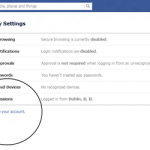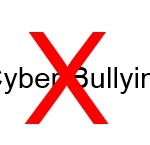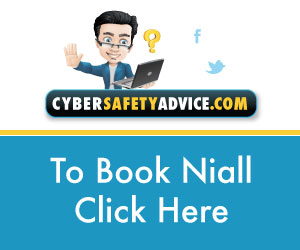This has been bullet pointed in my blogs before, but I wanted to expand some points for parents who still
would like more instructions. If you are reading this, please comment below with any questions please.
10 Tips for Parents to Prevent Cyber-Bullying
1. Learn what software is available to install on pc to prevent some misuse
There are lot of free and paid software available to monitor activity on computers and tablets. It’s a matter of going online and reading reviews. I personally recommend Net Nanny for phones, computers and Tablets and I heard great reviews of the free parental control package K9Web Protection.
2. Talk openly with children about their internet use and some of the dangers present
Research globally keeps coming back with a consensus on communication between parents and children will heighten the children’s awareness and respect for themselves online. It’s always great to keep the door open for your child if they ever need to confide in someone about activity online that is disturbing them.
3. Do not ban the internet outright, but maybe curb the times allowed
Following from the point above, it’s advisable not to ban the internet or certain sites, as children may defy their parents and use it anyway. Problem arises when child comes across something disturbing online and are too afraid then to come to the parents. Also, are you happy with your child Facebooking at 2 am on a school night?
4. Be agreeable that both parties are happy with where they internet can be accessed from
Sit down and discuss with the family as a whole where the internet can be used in the home. Are you happy with Tablets in the bedroom, games consoles being played until late into the night etc. Set guidelines and keep everyone reminded about these rules.
5. Inform children what is the right or wrong type of information that should be uploaded
Teach children the difference between right and wrong, for both online and offline use. Ask them would they be pleased if their friend put a comment or photo of same nature intending to make fun of them online. When they take them extra few moments out before uploading, they can save a lot of grief in the long run.
6. Talk of some incidents that may of happened to children that were unaware of the dangers online
With as much attention in the media of the tragedies it will not be hard to find a story to relate to. Explain how things start off as a joke maybe and eventually end up of friends falling out and harassing each other. If stuck for Case studies, check www.CyberSafetyAdvice.com for examples.
7. Ask your child if any of their friends are having issues with Facebook abuse or similar
Sometimes a child finds it easier to tell how someone else is getting abused online and not themselves. If your child speaks of such cases, we need to thank them for their bravery and also sit down and contact the people that are involved. Better to act rash quick than to leave it late and have regrets.
8. Praise your child when they come to you about their queries and always answer best you can
Touching on this in tip 7, when your children come asking how some actions are carried out and they would like it explained, praise them for asking you and not trying something out on their own that they do not fully understand. If you cannot answer them, say you will find out and come back to them. Find a person you know that is internet savvy and seek advice from them or email Cyber Safety Advice for an answer by clicking on this link
9. Join the same network as your child and follow their activity
No better way of understanding what is going on with these social media platforms and websites than to join it and explore. By you learning for yourself, you will better understand what your children are raving about!
10. Develop clear rules on what is appropriate for online. Create consequences if needed.
It is important to have rules from the outside. Not only time constraints rules, but rules on their behaviour online. If you are checking their social media and you find some photos distasteful and comments dreadful, explain it will have same repercussion as saying it to someone’s face. These are rules that hopefully are instilled in us when we are young, so they come to us automatically as we get older.














No comments yet.